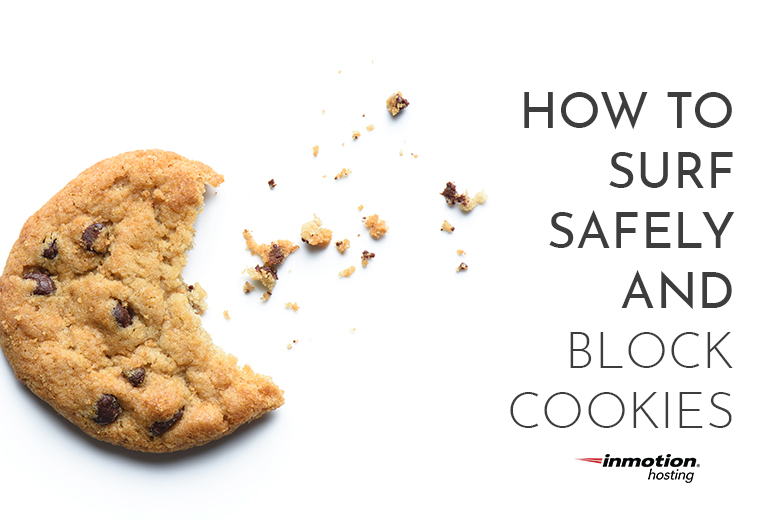
Every day we receive a deluge of questions from our customers about issues ranging from web design, development, or just general tips about surfing the web.
And for every question we get, we try to provide the most comprehensive answer we can to make sure our customers succeed in their hosting goals.
Yet, it seems there’s never too much that can and must be said about security both on your own website and while surfing the web in general.
In this post, we’re going to be talking about http cookies, what they are, how they work, and why you may or may not want to block them in your browser.
What are HTTP Cookies?
Cookies are very important for the web, and most websites use them. You’ve likely been using them for years without knowing it.
These little temporary files are able to save certain information about your web activity.
Here’s a full definition from Google:
Cookies are files created by websites you visit. They make your online experience easier by saving browsing information. With cookies, sites can keep you signed in, remember your site preferences, and give you locally relevant content. For example, cookies can save your login data for “sessions”, so you don’t have to keep logging into a site over and over again while using various secure pages on that site. Likewise, that same cookie can help determine if someone is logged out of a site and block the relevant pages.
Now we know cookies are important and virtually every website uses them. Yet, browsers that we use to surf the web give us the ability to block cookies for individual sites or block them entirely.
Also, new data protection laws require users to accept the use of cookies on certain sites. (You have noticed these annoying little popups when visiting your favorite sites.)
So, if cookies are so important, why would we want to block them?
To Block Or Not To Block?
People have security concerns, and they should. Some concerns are legitimate and some are way-out-in-space crazy. What level of security is right for you? Should you block all cookies?
Cookies are very powerful, and they can open you up to a lot of unwanted activity. Everything from saving your login data to serving you targeted ads or services.
But for many sites, there’s no reason to block cookies at all. For example, saving cookies for your own blog is a perfect example of innocent cookie acceptance. A cookie can make it more convenient actually, so you don’t have to keep logging into a blog to edit a post or moderate recent comments. The same might go for you email or favorite social media groups.
This is why popular web browsers such as Firefox let you block cookies for individual sites.
Being Safe
When it comes to protecting yourself on the web you really can’t be too careful. There are plenty of malicious hackers out there trying to sniff out data wherever they can. But if you can remember a few simple guidelines you can brave the information superhighway with confidence.
Always always check where you’re getting that wifi signal. These days, you can get wifi in almost every coffee shop, grocery store and even WalMart. This is great for working on the go, but public wifi can be a breeding ground for malicious cookie snatchers. So when browsing on public wifi, use your browser’s “incognito” mode. This basically lets you surf with a blank slate, whatever saved cookies you have will be hidden from malicious actors.
Bear in mind, your surfing activity, like which websites you’re visiting, is still visible in incognito mode. For complete anonymous surfing, you’ll want to look into a VPN (Virtual Private Network), which is out side of the scope of this article.
Just set it in your mind: public wifi means going incognito.
And unless you’re using a VPN, remember your surfing activity is always visible and recorded somewhere. This doesn’t mean anyone is looking, but the data is out there somewhere. So enjoy the Internet, but browse safely.
And, as always, feel free to submit your questions and enjoy some fine reading material at our Support Center.